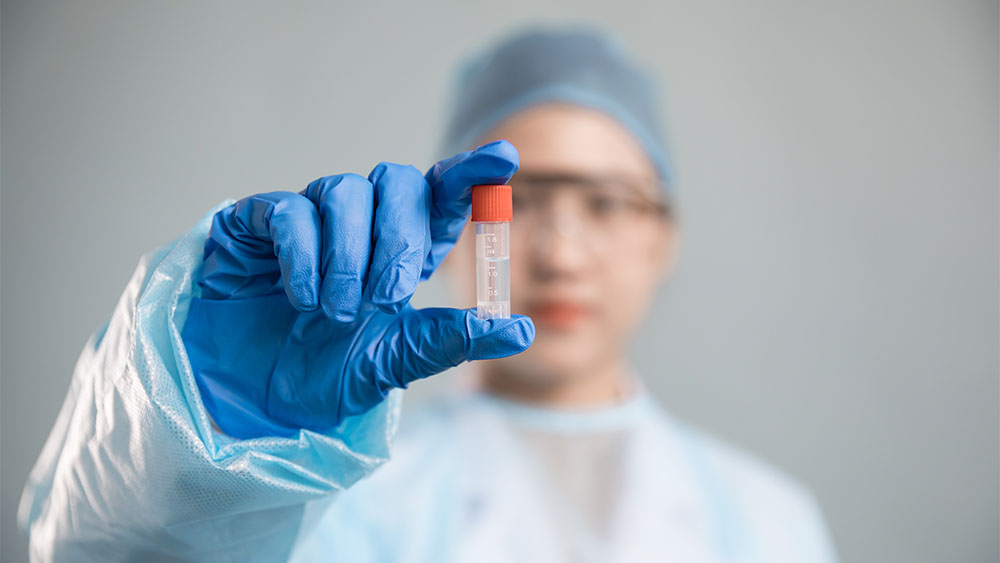
Monoclonal antibodies are antibodies produced in labs instead of naturally in the body.

Monoclonal antibodies are antibodies produced in labs instead of naturally in the body.
What you need to know
The COVID-19 anti-CD14 Treatment Trial (CaTT), supported by the National Institute of Allergy and Infectious Diseases (NIAID), is testing a laboratory-created (monoclonal) antibody called IC14. Antibodies are proteins the body produces to fight infections. IC14 may be a treatment option for patients who are in the hospital with serious lung disease caused by COVID-19. A previous study showed that IC14 may be able to prevent dangerous inflammation and help people recover from severe COVID-19.
How does IC14 work?
Immune cells help the body fight infection. SARS-CoV-2 — the virus that causes COVID-19 — can interact with a protein called CD14, found on immune cells. This interaction may cause immune cells to overreact and release excessive amounts of proteins that trigger inflammation, in what is called a cytokine storm. A cytokine storm can damage the lungs and other organs, and it can cause respiratory failure or even death.
IC14 acts as a force field (barrier) to block the virus from interacting with CD14 on immune cells. This calms the body’s immune response, preventing a cytokine storm.
Who can join the study?
People who have lung disease due to COVID-19 may be able to take part in the IC14 study. The study is located at many hospitals around the United States. Participants must be at least 18 years old and meet other criteria.
Why is this research important?
If the study shows that IC14 helps people recover from COVID-19, the U.S. Food and Drug Administration may approve it as a new treatment.
Where can I go to learn more?
- Scientists and health care providers need your help to develop safe and effective vaccines and medicines to prevent and treat COVID-19.
Monoclonal Antibodies for High-Risk COVID-19 Positive Patients
- Some monoclonal antibodies are already being used to treat high-risk patients.
- Infographic showing what monoclonal antibodies are, how they are given, and possible side effects.
Video: How Can Vaccine and Antibody Studies Move So Quickly and Still Be Safe?
- Many processes are in place to make sure treatments and vaccines for COVID-19 are safe and effective, even though research has moved quickly.
Video: Monoclonal Antibody Therapy for COVID-19: What Is It and How Does It Work?
- How monoclonal antibodies can help patients with COVID-19.
Sources
Martin, T. R., Wurfel, M. M., Zanoni, I., & Ulevitch, R. (2020). Targeting innate immunity by blocking CD14: Novel approach to control inflammation and organ dysfunction in COVID-19 illness. EBioMedicine, 57, 102836. https://doi.org/10.1016/j.ebiom.2020.102836
NIAID. (2021, April 13). NIH trial of anti-CD14 antibody to treat COVID-19 respiratory disease begins [NIH press release]. Retrieved April 22, 2021, from www.niaid.nih.gov/news-events/nih-trial-anti-cd14-antibody-treat-covid-19-respiratory-disease-begins
Ye, Q., Wang, B., & Mao, J. (2020). The pathogenesis and treatment of the ‘cytokine storm’ in COVID-19. Journal of Infection, 80(6), 607–613. https://doi.org/10.1016/j.jinf.2020.03.037
Zhao, Y., Kuang, M., Li, J., Zhu, L., Jia, Z., Guo, X., . . . You, F. (2021). SARS-CoV-2 spike protein interacts with and activates TLR4. Cell Research. https://doi.org/10.1038/s41422-021-00495-9

News and Stories
Read stories about the efforts underway to prevent, detect, and treat COVID-19 and its effects on our health.
 An official website of the United States government
An official website of the United States government

